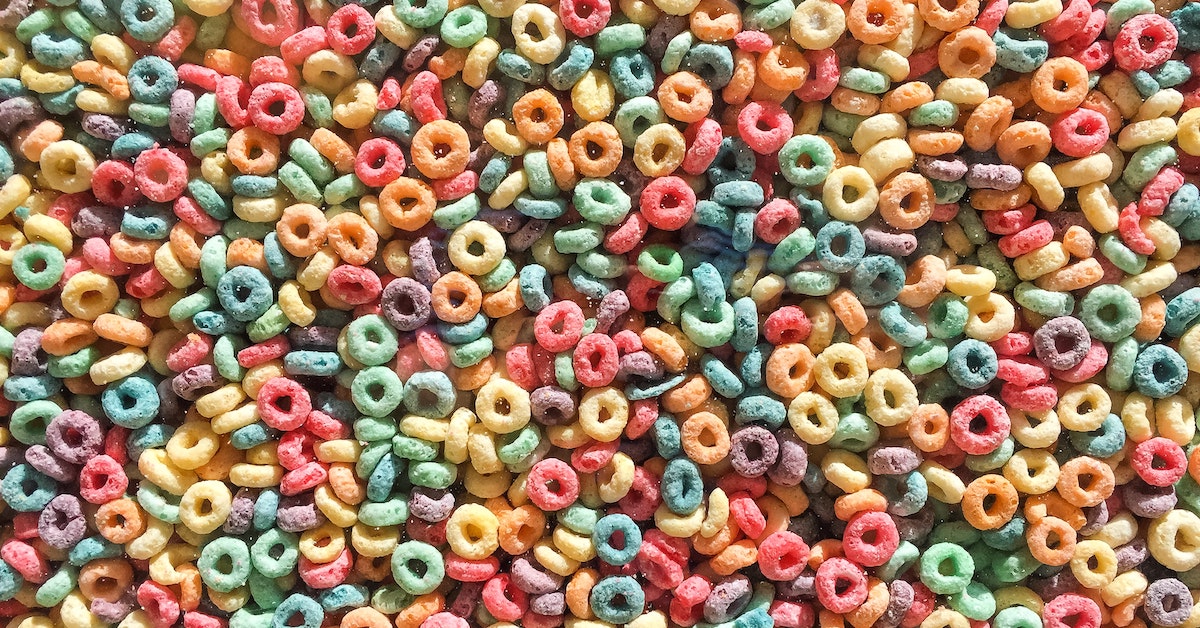GENERALLY...Nope. You said it means it's garbage. Now you're trying to walk back absolute statements.
You specifically said carbs in general. Now you're trying to walk back absolute statements.
You literally said it's how we ate "historically" and that breakfast is bullshit. Now you're trying to walk back absolute statements.
Exactly, which is why the issue is highly processed foods and not a particular macronutrient (fat, protein, carbohydrates because I am genuinely starting to doubt you know what a macronutrient is) because we've been eating them in some for or another for our entire existence.
Why are they bad for you? The reason health bodies say they are bad is that they raise LDL cholestorol and lower HDL.
The only reason to believe that is believing that what you consume does in fact affect blood LDL. Which you already said isn't true. Also why did it take me like 4 pages of asking for you to finally answer that? I have the decency to respond to every point you make. You keep ignoring half my posts.
Again you have just demonstrated that the guidelines were misunderstood by the public and corporations. Not that the guidelines were wrong.
I'm sure you can get real bread in America. And I'm doubly certain that that's what the food pyramid meant.
I told you. GP's are twats who think they're smarter than they are. They see the "general" in their title and think it allows them to speak on a range of topica when really it means they're in no way specialised and have a very limited scope of care.
And I said that that is hilarious because you claim to just follow the science but really you just believe what a clown on YouTube told you because it sounds about right to you. And I still stand by that. It is hilarious.
All of the absolute claims that I pointed out that you're now trying to walk back and pretend you didn't say or didn't mean the way you said them.
An entire macronutrient, one that can lead to flu like symptoms after a couple of days if cut too low. Take it you didn't google kwto flu then.
Most dietitians and nutritionists would work with you to build a better relationship with and understanding of the food you eat. Not just try and eliminate things. Also, vwry funny that you're encouraging following general guidelines now.
Yup and this is a prime example of one. Your complete ignorance of diet and nutrition makes you feel more confident speaking on it with authority than people who have more formal training because their training has taught them the limit of their scope of practice. But you'll spout nonsense with balls out confidence. It's very funny.
No you don't. You want belly scratches and to be told you're a smart little soldier.
Where? Pretty sure I said you don't know what a healthy person is.
Because you want to? It has exactly as nuch scientific backing as Intermittent fasting. Which I already pointed out, you ignored it amd that's why we keep running around in circles of your ignorance.
[quot]Also, most people's breakfasts are really just filled with sugars. [/QUO] So like I said the problem is the food, not when it's eaten.
Again, this is just based on personal beliefs and not any science, which is what you claim to follow.
Exactly. So obesity is not a symptom of insulin resistance.
Never said it is. I said obesity and insulin resistance are both caused by overconsumption.
You don't think it but you're wrong. By pure fat sources I mean things like oil, butter, lard and the like. Like I said, Meat, fish, nuts, beans and dairy products are all sources of dietary fats and they are well represented on the pyramid in roughly the ratio I suggested several times. And the top layer means added sugars. Added sugar means when you take a thing and put sugar in it. As an aside lots of people are eating just butter. They're dumb.
Carbs in America are pretty trash because you're usually not eating real bread or real pasta and of course all the added sugars. Thus, they've gotten a bad name.
I explained the whole breakfast thing pages ago. We did not eat historically on some 3 meal structure that we do today, and breakfast is the easiest thing to give up and usually the worst meal for the vast majority of people. The whole tagline of "breakfast is the most important meal of the day" is complete bullshit not backed by anything. When people say something tersely, it's gonna come off as more absolute than it really is.
What does your reply there have anything to do with eating tons of vegetable oils that we've never historically eaten? It makes sense it's probably not good to start eating something new in great quantity that we've never eaten before (that's rather different from other sources of food). You're acting like introducing a potato to a population that already normally eats vegetables is akin to starting to eat tons of vegetable oils that the species has historically never eaten (or eaten in very very very very low quantities).
Trans fats show links to many bad things like inflammation (and LDL cholesterol plus inflammation is a pretty bad combination). I didn't say what you eat doesn't affect cholesterol, I said the actual cholesterol content of the food doesn't affect your cholesterol. For example, the fact that eggs contain cholesterol doesn't matter with regards to your cholesterol, not that eggs (or anything else) doesn't have an affect on cholesterol. We already know you can hack a cholesterol test by eating a certain way beforehand if you want get a low score so you're in a lower risk bracket for your insurance.
The overarching guidelines were backwards, the stuff people actually remember and take note of... The only intake guideline the average person would probably know is the caloric intake one because it's all over the place. If you ask anyone how much X you're supposed to have everyday, they ain't gonna know. And my point is not to get people to actually know these guidelines because it's not really something people need to know to eat right. Nor would people be willing to keep count of all these things that they are eating either. Just keep it simple, avoid these problem foods as much as possible, eat real foods, and that should really be it. Of course, you'd have to go more in-depth obviously but having a person count how much sugar or fat they eat in a day just isn't something anyone is gonna do.
It's pretty damn hard to find real bread in America, I guess you don't realize how bad American food is. Refined grains are higher on the glycemic index than table sugar.
And you're evidence that you can eat sugar in the amounts that the average American does and be healthy? Sugar is causing so much sickness and chronic diseases and you're just not even gonna take a stand on that because it means you'd have to agree with me in any form?
Uhh... "keto flu" is just sugar withdrawals... it's not that the keto diet is actually doing something bad.
Funny how you can't actually say anything I said in that paragraph was wrong. You just point out I mentioned guidelines, which I meant to be general principles...
Repeating what other experts in the field have said is Dunning-Kruger? And you still don't know what Dunning-Kruger effect actually is.
Why wouldn't I know what a healthy person is? They'd have to got through a series of tests obviously, it's not like you can tell by just looking at them, though you can usually tell when someone is unhealthy.
Intermittent fasting has several documented health benefits.
The Influence of Meal Frequency and Timing on Health in Humans: The Role of Fasting - PMC
The influence of meal frequency and timing on health and disease has been a topic of interest for many years. While epidemiological evidence indicates an association between higher meal frequencies and lower disease risk, experimental trials have ...
What is wrong with the logic of giving up a meal that is probably the worst meal of the average person's day which also has the least important social component to it? Where's the science that says this meal is needed? I've linked to far more science and expert opinion than you have.
You said obesity leads to diabetes which it doesn't (it's usually the result of the thing that actually does lead to obesity). You can be obese and not even be close to having diabetes and you can be skinny have diabetes. If you intake too much sugar, you'll get diabetes regardless of if you're gaining weight (becoming obese) or if you're not gaining weight and staying a good weight (you're gaining fat in the wrong place regardless if your weight increases or not). If you're just eating say 4,000 calories of straight meat a day, you'll gain weight but not get diabetes.
Being obese puts you on the road to diabetes.
The food pyramid is even worse messaging than I thought if you're right about the top and pure fat sources. I recall there was some state fair (found the story I believe) where a fried stick of butter was super popular. I wouldn't even think of ordering that (though I'd try a bite) because I usually hate foods that are overly oily/buttery. Not too long ago I got a grilled chicken sandwich at my favorite chain restaurant in my area (BJ's Brewhouse) and there was so much butter/oil on it and it soaked into the bread that it ruined the entire flavor profile of the sandwich for me. I have a feeling a fried stick of butter would be like that but like 1,000 fold worse.

A Deep-Fried Stick of Butter (On a Stick) at the Iowa State Fair
Oh, good, it's state fair fried food season. A new contender for the craziest fried thing: the Iowa State Fair's fried butter on a stick. Fried butter itself is nothing new — it debuted at the...
Last edited:


